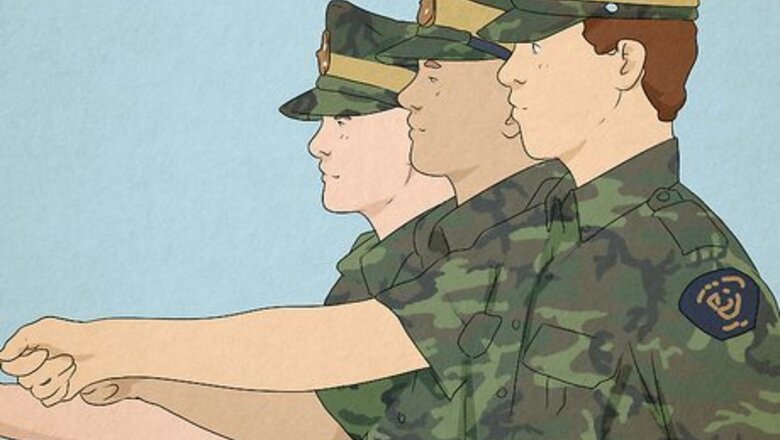
views
X
Research source
Preliminary Requirements
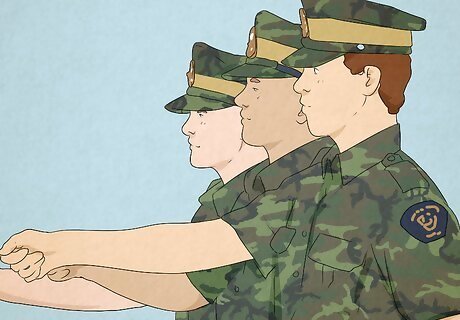
Enlist in the Army. You must have a minimum of four years in Service to qualify for Delta Force, so your first step in becoming a Delta Force operative is to enlist in the Army as a regular soldier and work steadily to rise through the ranks. Take and pass the Physical Fitness Assessment (PFA) and qualify for security clearance with your recruiter and discuss your ambitions to join Delta Force. All applicants for SFOD-D must be male, at least 22 years old, have a general technical score of 110 or higher. You must attain the rank of E-4 through E-8, with at least four years in service, and have at least two years remaining on your contract to qualify. To get started on the right foot, talk to your recruiter about your eventual desires to end up in an elite unit like Delta Force, so you'll be advised correctly. For the most part, you'll want to volunteer for a combat arms job, to qualify more quickly for more advanced training and specialization. For the most part, Delta Force soldiers are Green Berets or Rangers first, then are recruited out of their specialization. Make joining the special forces your first goal.
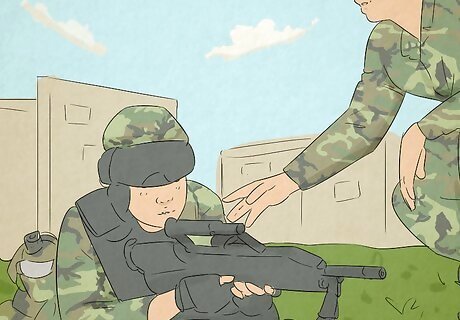
Attend Infantry One Station Unit Training (OSUT). OSUT combines Army Basic Training and Infantry AIT (Advanced Individual Training) in one 14-week course, giving you the fundamental skills to transition from a civilian into a soldier, and a specialized soldier at that. If you want to end up in Delta force, you should go into OSUT expecting to develop your proficiency in a variety of field tasks, including: Weapon and vehicle operation and maintenance Land reconnaissance Map reading and navigation Minefield safety Communications equipment operation Preparing fighting positions Constructing barriers
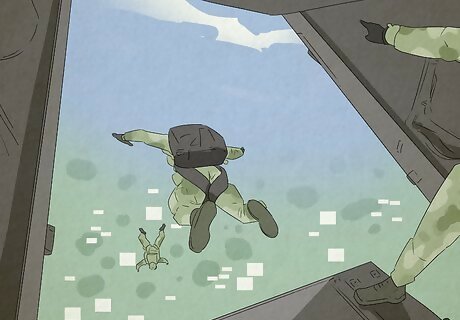
Attend Airborne Training at Fort Benning. Special Forces troopers who eventually want to join Delta Force must qualify for and complete airborne training, in addition to AIT and other specialized training. This is a voluntary training that some soldiers elect to take to "earn their wings," becoming paratroopers. It's four weeks of jump training, starting on the ground and eventually moving to completing a series of jumps at an altitude of 1,200 feet (365.8 m).
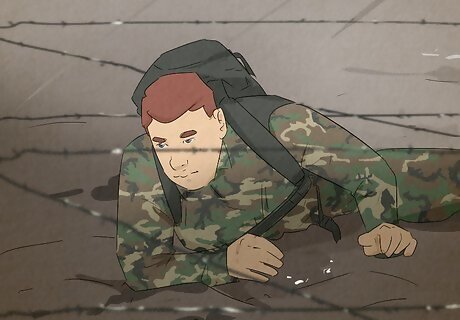
Attend a Special Operations Preparation Course (SOPC). These four-week courses typically lead up to the Special Forces Assessment and Selection (SFAS) program, which you must pass to be admitted to Special Forces training and continue your rising in the ranks. The SFAS program assesses and selects Soldiers for attendance at the Special Forces Qualification Course (SFQC). This program allows Special Forces an opportunity to assess each Soldier's capabilities by testing his physical, emotional, and mental stamina. Once you pass the SFAS, you'll move on to the SFQC. The SFQC teaches and develops the skills necessary for Special Forces. The enlisted applicant's SFQC training will be scheduled upon successful completion of SFAS.
SFQC Training
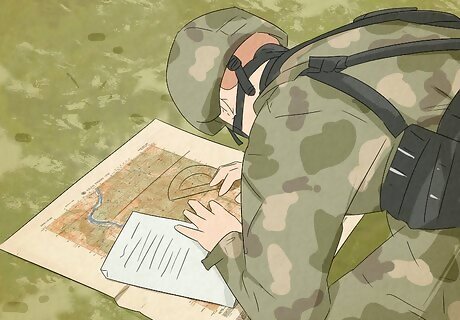
Pass the individual skills phase of training. During this period, soldiers are trained on specialized skills necessary to Special Forces work. Training is 40 days long and covers land navigation, cross-country map exercise, and small unit tactics. The specifics subjects and methods of the training process aren't public, and will be made more clear to soldiers who are admitted.
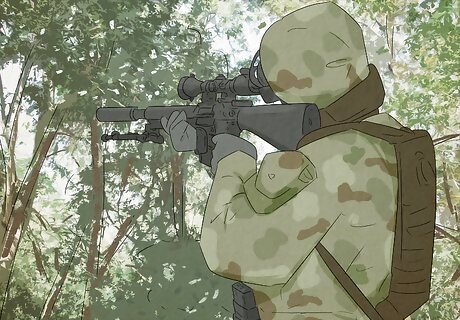
Complete your Military Operational Specialty (MOS) training phase. Training for this phase is 65 days and culminates with a mission planning cycle, during which you'll put your leadership skills to the test, as well as hone your particular specialities and skills that you've been developing over the course of your training. Different soldiers, depending on their experience, training, and specialities, will have different responsibilities during MOS.
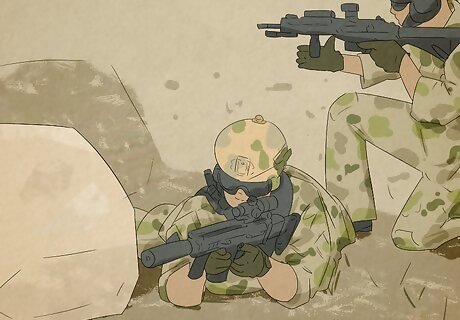
Complete the Collective Training Phase. During this 38-day period, Soldiers are trained in Special Operations (SO) classes, Direct Action (DA) Isolation, Air Operations, Unconventional Warfare classes, and receive Isolation training. This is one of the most mentally tough and physically strenuous training sequences in all of the United States military. You'll be put to the test and expected to perform at a high level. Many soldiers scrub out.
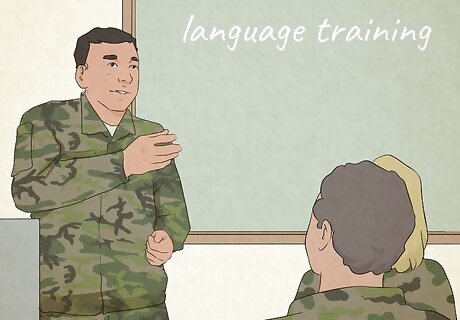
Receive language training. Language training is required for all incoming Delta soldiers and expected of advanced-level Special Forces soldiers from all backgrounds. Typically, languages are assigned in relation to the score from the Defense Language Aptitude Battery (DLAB), which you'll take during your training.
Standing Out
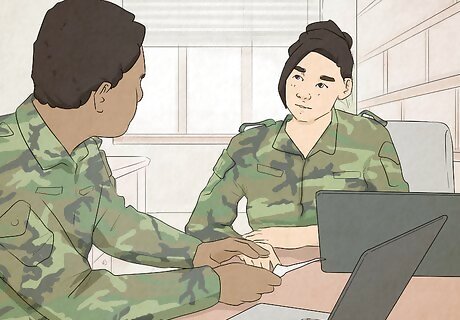
Make it clear what you want. The military respects ambition and rewards skill and dedication. If you want to join Delta Force, make it clear to your commanding officers and other ranking officials. This is the best way to be recruited to train and possibly qualify for part of this elite unit. If you leave your desire a secret, it's unlikely you'll be tasked with joining up. Be honest about what you want. Get to know your COs and other ranking officers very well. It's no understatement to say, like anything else, there's a political element to getting promoted and getting what you want in the military. Make friends in high places and you'll have someone's ear, and also have a good line into what other COs and ranking officers expect from the soldiers. Keep an ear out for tips and tricks. Talk to the right people.
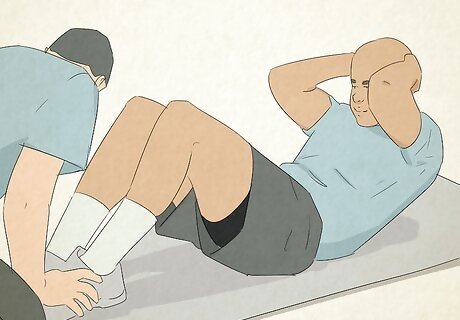
Be trainable. Your job during the selection phase is to show your potential and train-ability under stress. Focus on giving every task that you are faced with 110 percent effort and never ever quit. You are not expected to be a super-soldier right off the starting line, but you are expected to be considerably above average and to remain committed to improving your skills and being a teachable soldier. Remember, once you're admitted, you'll be trained extensively, and put to the test mentally and physically. You just have to get there. If anyone asks if you're ready, your only answer should be "Yes, sir."
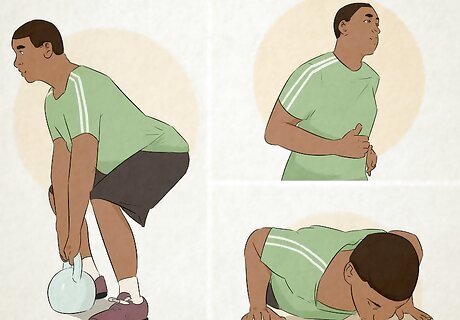
Get in your peak physical condition. Delta Force soldiers need to be beyond fit. Even if you haven't enlisted as an infantry soldier yet, it's a good idea to start getting into your peak physical condition, focusing specifically on building endurance and cardiovascular strength. Practice walking for very long distances (30mi or more) with a weighted (60lbs) rucksack. Try for 15 minute miles, though you will be expected to travel at a much faster pace during Selection.
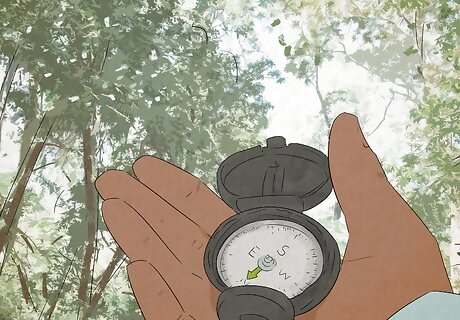
Practice your land navigation skills in private. Land navigation skills are key to successfully completing the Delta Force selection course. Know how to use a compass and map intimately, practicing your skills as often as possible. If you've already got that down, it's one less thing you'll have to focus on learning during training, so you can focus on improving other aspects of your candidacy.
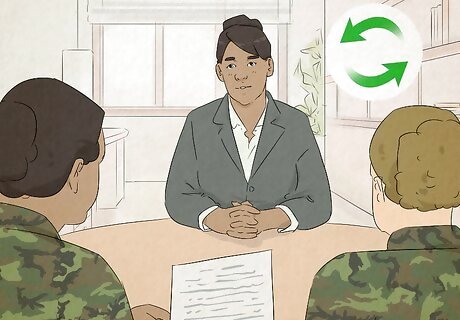
Reapply if you're not accepted the first time. The majority of applicants to Delta Force will be rejected and most accepted applicants have previously applied. Of all the people in the army, only a fraction of them become Airborne Rangers and Green Berets. Of all the Airborne Rangers and Green Berets, only a fraction of them are selected for Delta Force.




















Comments
0 comment